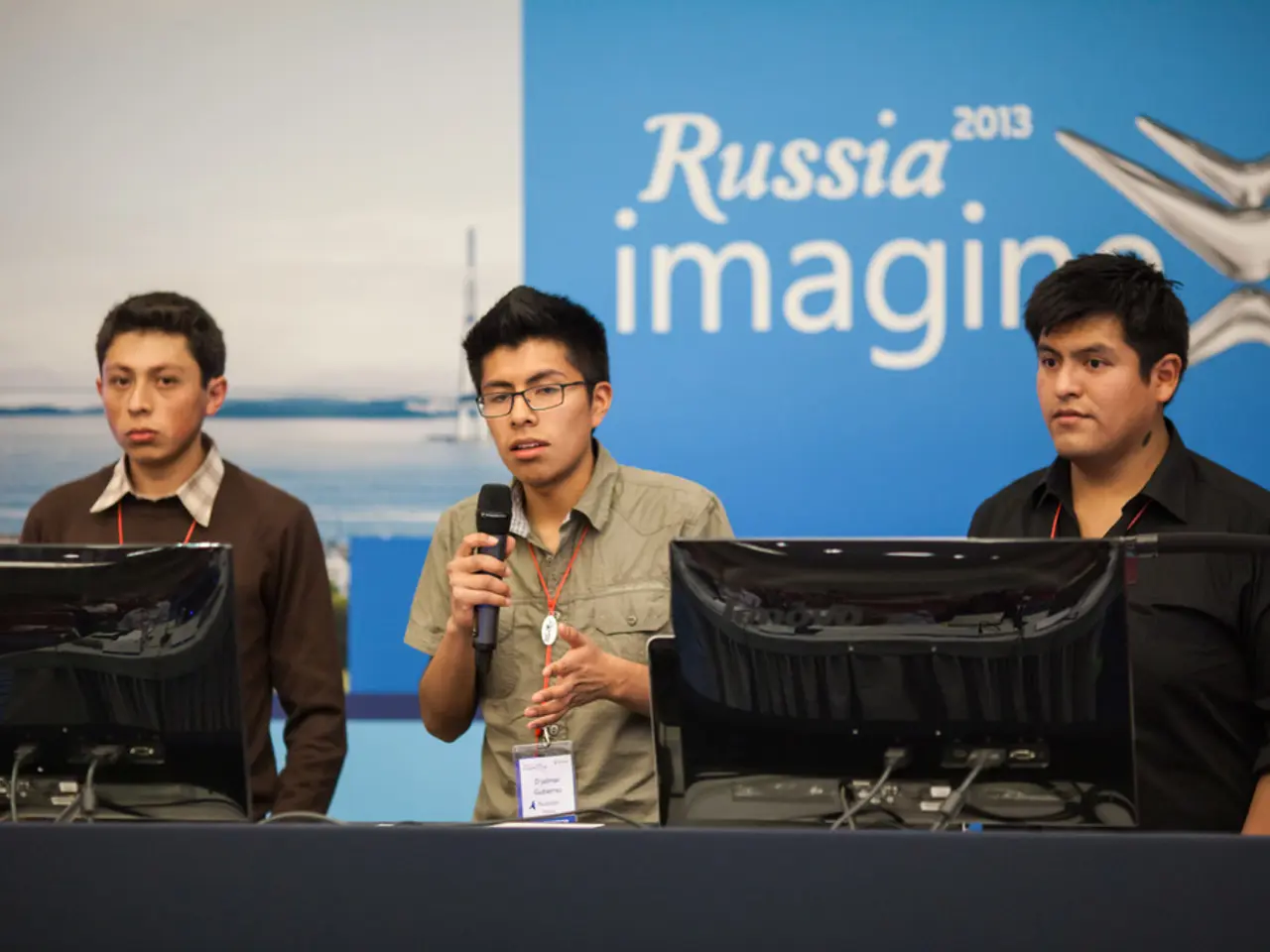Deep State Development: Potential Intelligence Collaboration with Taiwan on the Table
The US Senate has taken a significant step towards strengthening intelligence sharing between the United States and Taiwan with the inclusion of an article in the 2026 Intelligence Authorization Act (IIA) bill.
According to John Dotson, director of the Global Taiwan Institute, while the article in the 2026 IIA bill is a sign of a possible effort to strengthen intelligence sharing, it lacks specificity and binding force. Senator Mark Warner added the requirement for the Ukraine-Lessons-Learned commission to share insights with Taiwan.
The article calls for sharing lessons learned from the war in Ukraine with Taiwan. The study group, a joint task force organized by the Pentagon and the US Office of the Director of National Intelligence, is authorized to draw tactical and operational lessons from the conflict in Ukraine. The lessons learned are intended to guide defense acquisition and capabilities development in Taiwan.
The study group's findings, if shared with Taiwan, could help Taiwan make decisions about the types and quantity of arms it seeks to acquire. The lessons learned cover aspects of intelligence operations, ammunition expenditures by munition type, command and control, and force dispersion, as stated by former US National Security Council director for Taiwan Affairs, Marvin Park.
However, many US officials are reluctant to broaden Taiwan's access to sensitive information due to fears of Chinese infiltration, as per John Dotson. The executive branch is at liberty to ignore such directives, and any part in a proposed bill is subject to amendment or deletion in the legislative process, according to Dotson.
The 2026 IIA must be reconciled and passed by both chambers of the US Congress - the Senate and the House of Representatives - before heading to US President Donald Trump's desk. The Taiwan Enhanced Resilience Act in 2023, which enables the use of the presidential drawdown authority for earmarking materiel stockpiled in US military reserves for Taiwan, is more relevant to Taiwan's defense capabilities, according to Marvin Park.
Peter Mattis, former CIA analyst, stated that the article in the 2026 IIA bill shows US lawmakers' commitment to maintaining Taiwan's autonomy and defense. The bill remains surrounded by uncertainty, as per John Dotson. The article in the 2026 IIA bill does not bind the enactment of a potential policy, as the authority for making such decisions falls under the executive branch's discretionary powers.
The Central News Agency (CNA) reported on this development in an exclusive report. Peter Mattis also stated that the article in the 2026 IIA bill recognizes the need for collaborating with like-minded nations to overcome transnational supply chain and procurement challenges in mobilizing a nation's defense industrial base.
In addition, the US Senate has added an order to the bill for the Ukraine Lessons Learned Working Group to evaluate sharing its findings with Taiwan. The study group's findings, if shared with Taiwan, could provide valuable insights into how Taiwan can strengthen its defense capabilities and intelligence sharing with the US.
Read also:
- United States tariffs pose a threat to India, necessitating the recruitment of adept negotiators or strategists, similar to those who had influenced Trump's decisions.
- Weekly happenings in the German Federal Parliament (Bundestag)
- Southwest region's most popular posts, accompanied by an inquiry:
- Discussion between Putin and Trump in Alaska could potentially overshadow Ukraine's concerns








